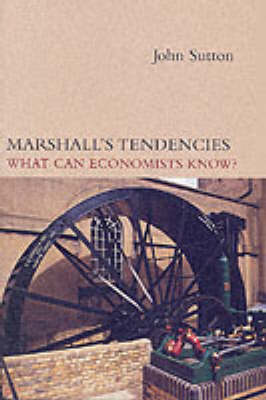Gaston Eyskens Lectures
1 total work
I started to read idly, and soon found myself hooked. An intelligent insider's thoughts on research strategies will do that to you.
The world of economics is a complicated and messy place. Yet modern economic analysis rests on an attempt to represent the world by means of simple mathematical models. To what extent is this possible? How can such a program cope with the fact that economic outcomes are often driven by factors that are notoriously difficult to quantify? Can such mathematical modeling lead us to theories that work? In these lectures, John Sutton explores what he calls the "standard paradigm" that lies at the heart of economic model building, whose roots go back a century to the work of Alfred Marshall. In probing the strengths and limitations of this paradigm, he looks at some of the remarkable successes, as well as deep disappointments, that have flowed from it. For sales in Belgium, the Netherlands, and Luxembourg, contact Leuven University Press at fax (+32)16/32.53.52 or universitaire.pers@upers.kuleuven.ac.be
The world of economics is a complicated and messy place. Yet modern economic analysis rests on an attempt to represent the world by means of simple mathematical models. To what extent is this possible? How can such a program cope with the fact that economic outcomes are often driven by factors that are notoriously difficult to quantify? Can such mathematical modeling lead us to theories that work? In these lectures, John Sutton explores what he calls the "standard paradigm" that lies at the heart of economic model building, whose roots go back a century to the work of Alfred Marshall. In probing the strengths and limitations of this paradigm, he looks at some of the remarkable successes, as well as deep disappointments, that have flowed from it. For sales in Belgium, the Netherlands, and Luxembourg, contact Leuven University Press at fax (+32)16/32.53.52 or universitaire.pers@upers.kuleuven.ac.be
